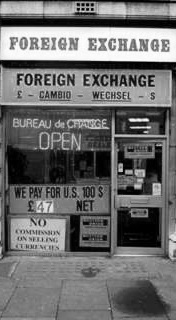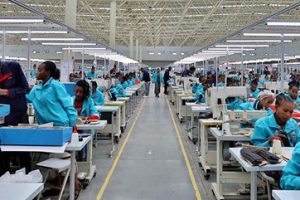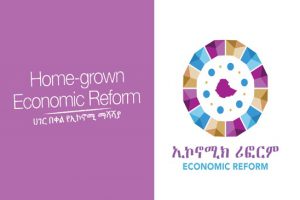
What is Forex?
Forex is short for foreign exchange. Foreign exchange is foreign currency in exchange for local currency. And it is not any local currency that is considered to be foreign exchange. For a national currency to be called foreign exchange it has be accepted all across the world for the purchase of goods and services in cash or on credit.
In essence, a local currency that has attained the status of being foreign exchange (forex) actually represents the strength and resilience of the national economy that issues it. Such a national economy must be able to produce a wide range of quality goods and services based on the state- of- the- art science and technology, which enables it to compete freely on the world market.
For a country to have its national currency attain the status of foreign exchange it must possess the natural resources (raw materials), the educated and trained work- force and the technology necessary to produce a sufficient amount of quality goods and services to sell on the world market to be reckoned as a major player.
As of now, the US, Europe, Japan, China and the UK together account for the bulk of world trade so that their currencies (the US dollar, the Euro, the Yen, the Yuan or Reminibi and the Pound Sterling) are considered to be hard or pretty hard currencies eligible for the status of being recognized as foreign exchange acceptable for payment and settlement of financial transactions around the world.
In the three components of the production process mentioned above, namely raw materials, educated work-force and technology, the all – important and decisive factor of production is, of course, the educated work-force component which makes the technology and maintains and repairs it and uses it to exploit the natural resource endowments.
Forex cannot be had or earned for Ethiopia unless we have a well–educated and trained work- force to copy the technology (because it has already been made by the ferenjis), maintain and repair it and use it to exploit our God- given natural resources, particularly relatively fertile land, natural forests, livestock and water resources, several types of minerals and, above all, comparatively excellent climate and weather.
How IS Forex Made?
For us Ethiopians to even begin to think how to make foreign exchange we have first to look at what China did to do so in the last forty- five years and feel ashamed of ourselves? China now has over three trillion dollars in foreign exchange reserves and is lending America its own currency! What is more, it achieved all that in the absence of any uncommon abundance in natural resources.
So, undoubtedly, the magic behind such a stupendous forex upsurge must be, you guessed it, the educated and trained work force component! China today is the possessor of a highly trained technical work-force capable of laying down the state- of- the- art 5G infrastructure for global powers such as the UK! It is also rolling out Jet planes on a par with Boeing! China’s share in global exports is now fast approaching the 15 percent mark, above that of Europe! That is essence in how forex is made.
The Sources of Forex for Ethiopia
In the forty-five years since Emperor Haile- Selassie was deposed by Derg the military junta led by strongman Mengistu Hailemariam, the foreign exchange earning capacity of Ethiopia has barely budged. Annual merchandise export earnings are still below 3bn USD, a woeful statistic in comparison with the size of the economy. On the other hand, it is a sad commentary on the country’s export performance that it has now been overtaken by inward remittances, now gradually growing to slightly over 4bn USD annually. Approximately the same amount of forex is made from tourism (roughly 3.8 br USD annually). Foreign grants, loans and investment (FDI) make the balance of 4-5 bn USD.
So, we know what happened in China, but what did happen in Ethiopia? Ethiopia has about one tenth of the population of China or about 110 million people. Shouldn’t it have had one tenth of China’s annual merchandise export earnings or about 200 bn USD? No kidding! Both had forty –five years to do it in?.
So, why not? Ethiopia has immense potential, as pointed out above, in crop production, forestry development, tree farming, livestock development, horticulture, poultry, sheep and goats, bee and honey development, mineral development, including oil and gas, potash, water resources development, agro- industries and other industries, tourism, cotton plantation, etc. Hence, there is no dearth of natural resources, but of brains and skills.
The lack of brains and skills begins with political and economic leadership. Neither Mengistu nor Melesse Zenawi was particularly teen on developing a well educated and trained bureaucratic and technical cadre of professionals and technocrats.
In fact, Melesse Zenawi deliberately weakened the quality of university education by sacking some 40 highly qualified professors and lecturers upon assuming power in 1991. So, there have been no high ranking government officials to create an enabling environment particularly for the private sector of the economy.
Mengistu Hailemariam proclaimed socialism and killed private initiative and enterprise. Melesse Zenawi decimated the quality of education and training in the country depriving the economy of managerial, technical and entrepreneurial talent that would have transformed the country’s agricultural, industrial and service sectors and would have definitely significantly improved the forex earning capacity of the country’s economy.
As is well –known, the TPLF/ EPRDF government land, credit, monetary, fiscal and forex policies have been literally inimical to private enterprise and rapid economic growth and development. Poorly and inadequately studied government white – elephant mega projects crowded out the private sector and created unimaginable waste and value subtraction.
The subservient National Bank of Ethiopia (the country’s central bank) spewed and spouted inflation instead of holding it in check by a disastrous currency printing spree of unprecedented proportions . Promptly, the local currency glut voraciously preyed on the scarce foreign exchange in the country, bidding up the dollar price to nearly forty birr currently.
The grotesquely distorted overall incentive system in the country, which still peculiarly rewards thieves and corruption in general, upended any private –sector efforts to revive and re-vitalize the moribund economy.
Hence, the sources of foreign exchange for Ethiopia, far from being the founts of hard currency like us dollars, euros, sterling, etc are threatening to dry up and cause a major crunch. Only a few months ago, the Governor of the National Bank of Ethiopia said that the available foreign exchange supply had dwindled so much that the scarce resource would be sparingly used only for fuel and medicine imports, but only to counter what he said a few days later that the NBE had foreign exchange reserves enough to cover 2.6 months of imports, an amount considered to be adequate even by IMF standards.
Ways and Means of Augmenting Ethiopia’s Forex Resources
In the immediate aftermath of the rather severe forex crunch that has emerged in recent months, Prime Minister Abiy Ahmed had to do some globe- trotting, of course bowler–hat in hand, to get something of the stuff from friends around the world, including Emirates, Saudi and China. He claims to have scraped together some thirteen billion dollars, including hard currency from traditional sources in no more than seven months.
The sum is said to include savings from interest cancelations on external debt owed to China. Congratulations to the PM, but we must remember that this is really something of what we may call a Pyrrhic victory won at the expense of the country’s pride and reputation. There may also be some undisclosed strings attached.
Be that as it may, short- term measures to augment foreign exchange inflows are rather difficult to come by. At any rate, here are a few suggestions for whatever they worth:
Short –Term Measures (within a period of one year)
- Maintain peace and stability throughout the country so that normal foreign exchange inflows may resume from merchandise exports, tourism and foreign direct investment;
- Solicit additional grants and concessional loans from friendly countries and international organizations such as the World Bank, African, Development Bank, IMF, etc;
- Convince Ethiopians living and working abroad to continue sending remittances through the official banking and money transfer channels in order to enhance official forex holdings;
- Commence proceedings to try and repatriate hard currency stolen from Ethiopia by corrupt Ethiopian officials variously estimated at between 30-40bn USD;
- Devise a temporary foreign exchange rationing scheme on a priorities basis after due consultations with the IMF;
- Allow franco valuta imports (i.e. imports not requiring forex from official sources) for essential imports;
- Formulate a monetary policy through the NBE that is consistent with the total current foreign exchange inflows and with the need to maintain foreign reserves to cushion potential significant decreases in world commodity prices (particularly coffee prices) and emergency national security requirements, etc.
- Formulate a fiscal policy through the Ministry of Finance and Economic Cooperation which is consistent with a balanced budget target and with availability of foreign exchange.
Long and Medium –Term Measures
- Overhaul and revamp the country’s education system in order to produce a highly educated and skilled work-force, including top – notch professors, researchers, technologists and other professionals and entrepreneurs.
- Restructure and re-organize the state banking sector and generally the country’s banking and financial sector with a view to providing loans and credits to hardworking and trustworthy entrepreneurs in all sectors, particularly in large – scale commercial crop farming, forest development, cotton, plantations, livestock development, agro-industries, other industries, tourism, etc;
- Grant appropriate incentives to foreign direct investment, particularly in joint ventures with the domestic private sector and competent development agencies of the government;
- Change current land policies in accordance with the need to create private, collective, government and lease ownership patterns;
- Formulate appropriate development, land use, macro, micro, monetary, fiscal, etc. plans, policies and strategies to attain economic development and growth objectives in line with availability of resources, including forex resources.
Concluding Remarks
Foreign exchange in the sine qua non for economic development. It must be created or earned by Ethiopian themselves although external assistance may be obtained on the way to self- sufficiency in hard currency. We must export in order to import, and our import needs are those required for initiating the very production process necessary for export production as well as for domestic production.
Foreign loans and grants must therefore be efficiently used to increase the volume and quality of production for the external as well as for the domestic market, and earnings thereof must be sufficient to repay external debt together with its interest.
There is no shortcut to earning foreign exchange other than through productive knowledge, technical know- how and skills, i.e. knowledge to transform our national resources into not only export and domestic consumer goods and services but also into capital and intermediate goods and services.
For this, we will first need enlightened political and economic leadership of the Derg of China or the great Lee of Singapore! We owe it to ourselves to feel ashamed of ourselves for being so far behind China and Singapore although we had the same forty- five years to be where these two great countries are today! Forex is a do or die affair Export or Perish!.
The Ethiopian Herald May 12/2019
By Teklebirhan Gebremichael, A.A





